How Accurate Is VO2 Max On Your Watch?
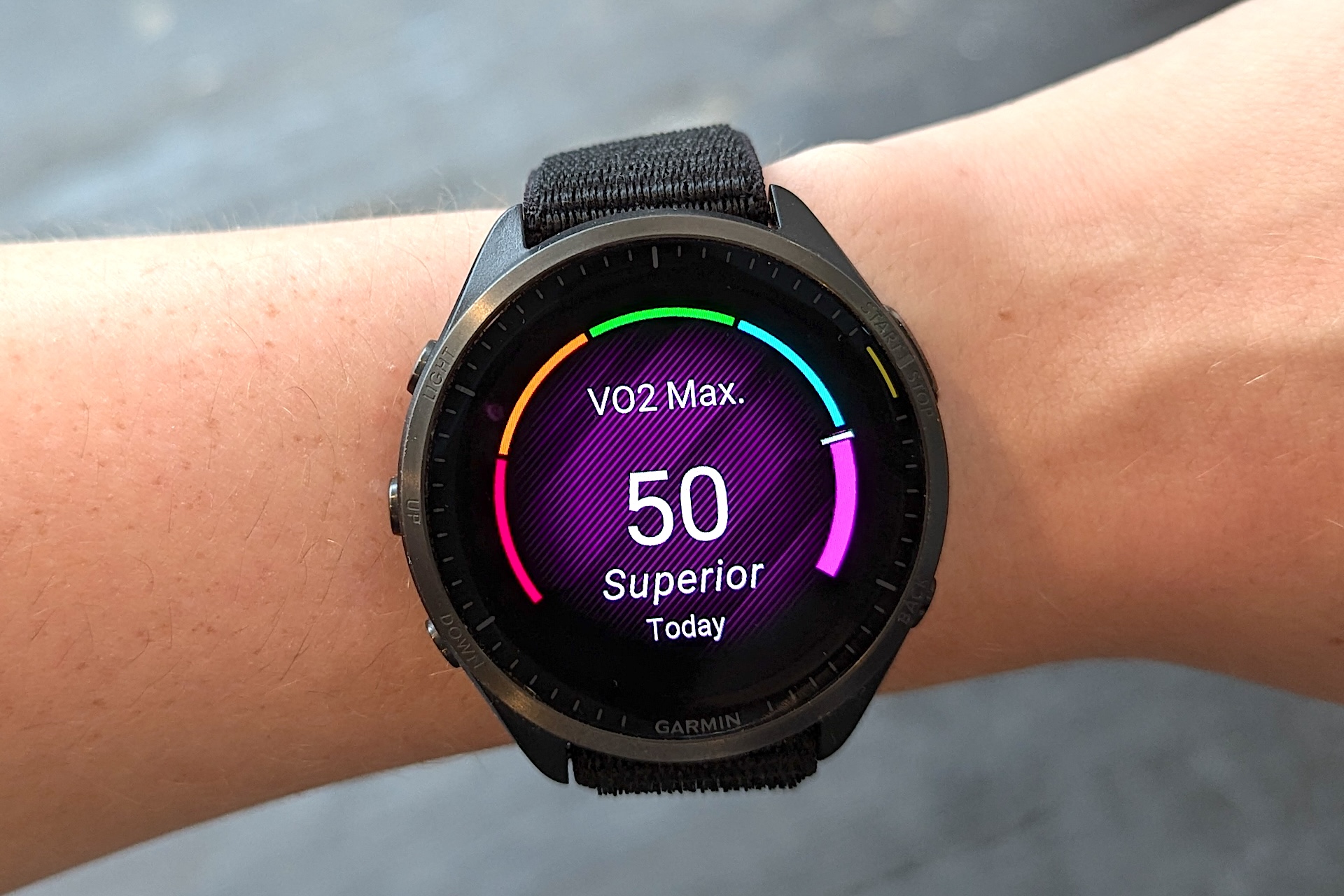
Your running watch tracks and measures your VO2 Max, but what does that mean? And is your running watch’s VO2 Max reading actually accurate?
WHAT IS VO2 MAX?
VO2 Max is a measure of your cardiovascular fitness and it’s the maximum amount of oxygen your body can breathe in and use in the muscles in one minute – the more oxygen you can use, then generally the higher your fitness capacity is.
It’s measured as a number which represents millilitres of oxygen per kilogram of body weight per minute. It’s an individual measurement and will vary for each person based on their gender, age and fitness, and can range from under 30 to over 90. Regularly performing cardio vascular exercise (like running!) is a great way to increase your VO2 Max score.
HOW CAN I IMPROVE MY VO2 MAX?
VO2 Max is improved in two ways: by consistently running at an easy pace, which increases your overall fitness (and by gradually adding more miles each week), and then by also running short interval workouts where you’re exercising at around 90% of your maximum heart rate for between three and eight minutes (it’s specific, but it works!).
Aim for around 80% of your weekly running to be easy and no more than 20% of your weekly mileage to be these faster intervals. You can’t only run VO2 Max workouts every day and hope to get really fit because you’re very likely to get injured by doing this.
Here are some examples of workouts which can improve your VO2 Max.
HOW IS VO2 MAX MEASURED?
The best way to measure VO2 Max is by running on a treadmill in a lab where you’ll wear an oxygen mask. It’s uncomfortable, it’s very challenging, and it’s not very fun, but it is an accurate way to learn your VO2 Max.
The test works by measuring the amount of oxygen we breathe out, which shows how much oxygen we’ve therefore utilised in the muscles. As we breathe heavier and run to the point of exhaustion, the test measures the maximum amount of oxygen we use and compares that to our pace and heart rate.
But what if we can’t (or don’t want to!) get a lab-tested VO2 Max score?
Most of us will know our VO2 Max because of our running watches. These work by taking as much data as it knows, including pace, heart rate, max heart rate, age, weight and gender, and it predicts your VO2 Max from that, which it does by working out how hard you have to work as your pace and heart rate increase together.
DO I NEED TO TRACK MY VO2 MAX?
That’s totally up to you, but as it’s a good measure of general fitness it can be useful to track when you’re in the middle of a specific training block. If you see it gradually improving then it’s a sign that your training is being effective overall.
But you shouldn’t train specifically to try and improve your VO2 Max score. By having a well-rounded and balanced training plan that includes easy runs, a long run and one or two harder workouts or interval sessions each week, you should naturally see improvements in your VO2 Max.
IS THE VO2 MAX ACCURATE ON MY RUNNING WATCH?
To find out for sure how accurate VO2 Max readings are on our watches, Andy and Sarah took on a lab VO2 Max test and compared it to their watches – you can see the full video below (and you can see just how hard it is to do these tests in the lab!).
They found that their watch and the lab readings were very similar, and in general there’s up to a 5% variance between a running watch and the lab results for most people, typically most watches read slightly high.
A 5% variance means someone with a VO2 Max watch reading of 50 is likely in the range of 47-52.
Your watch VO2 Max becomes more accurate the more you wear it as it collects more data from you – like understanding your heart rate at different paces as you progress through your training. A new watch may not read perfectly but after a few weeks or months it should settle into a more precise reading. It will also change as you train and become fitter or take some recovery weeks.
***
You can be confident that your watch VO2 Max is generally accurate, but do you track and measure your VO2 Max? Do you do workouts specifically to try and improve your VO2 Max?



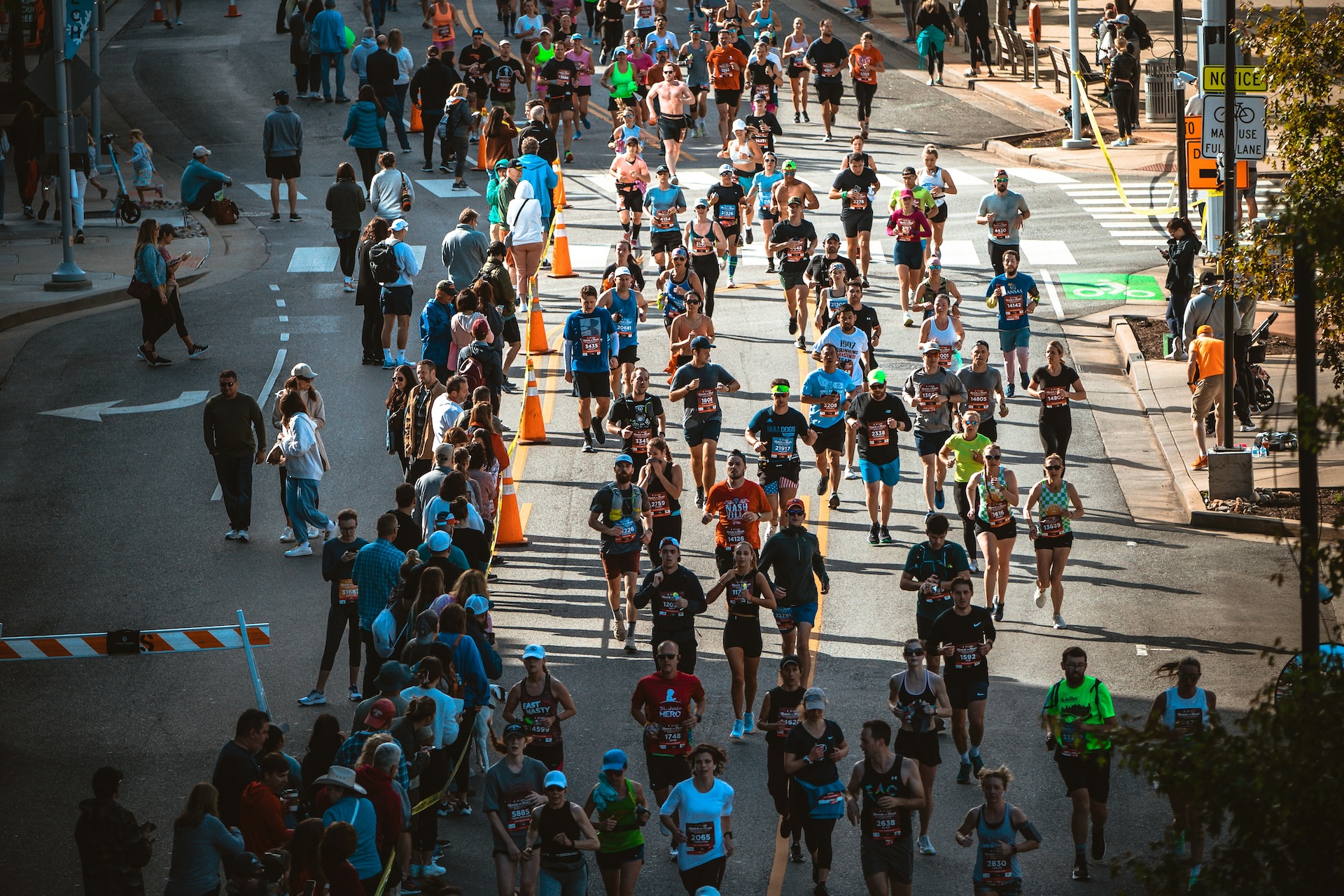
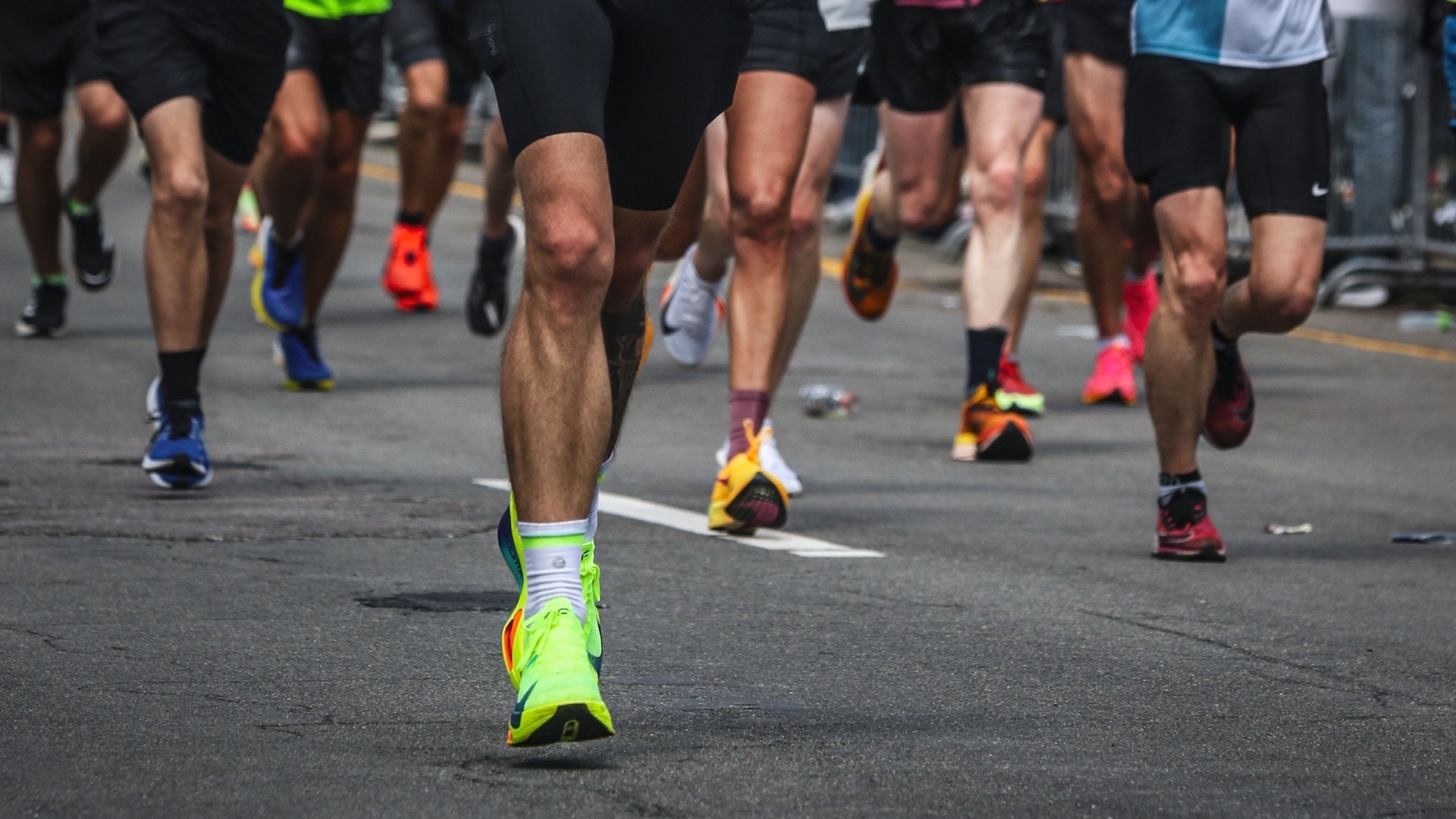
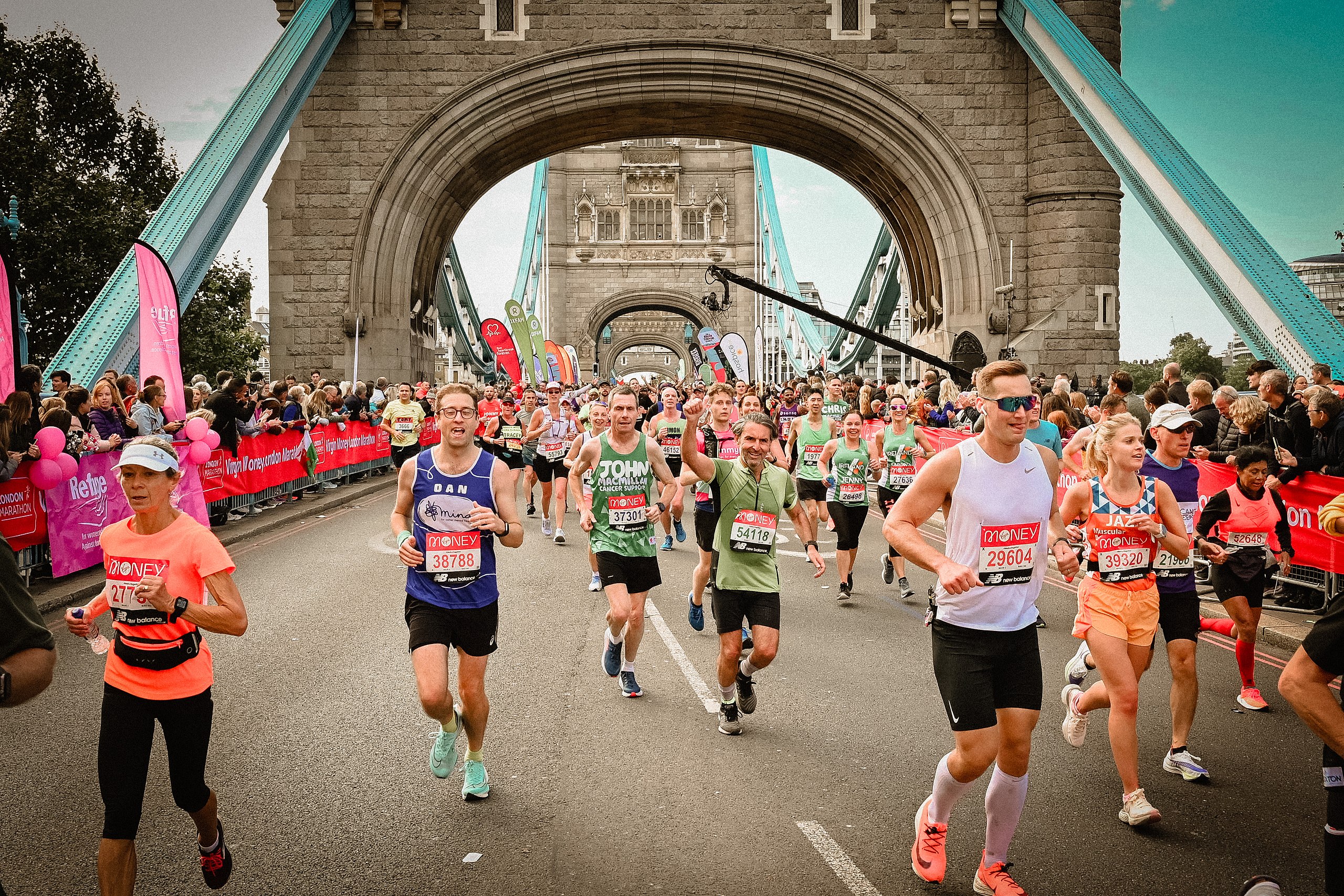
















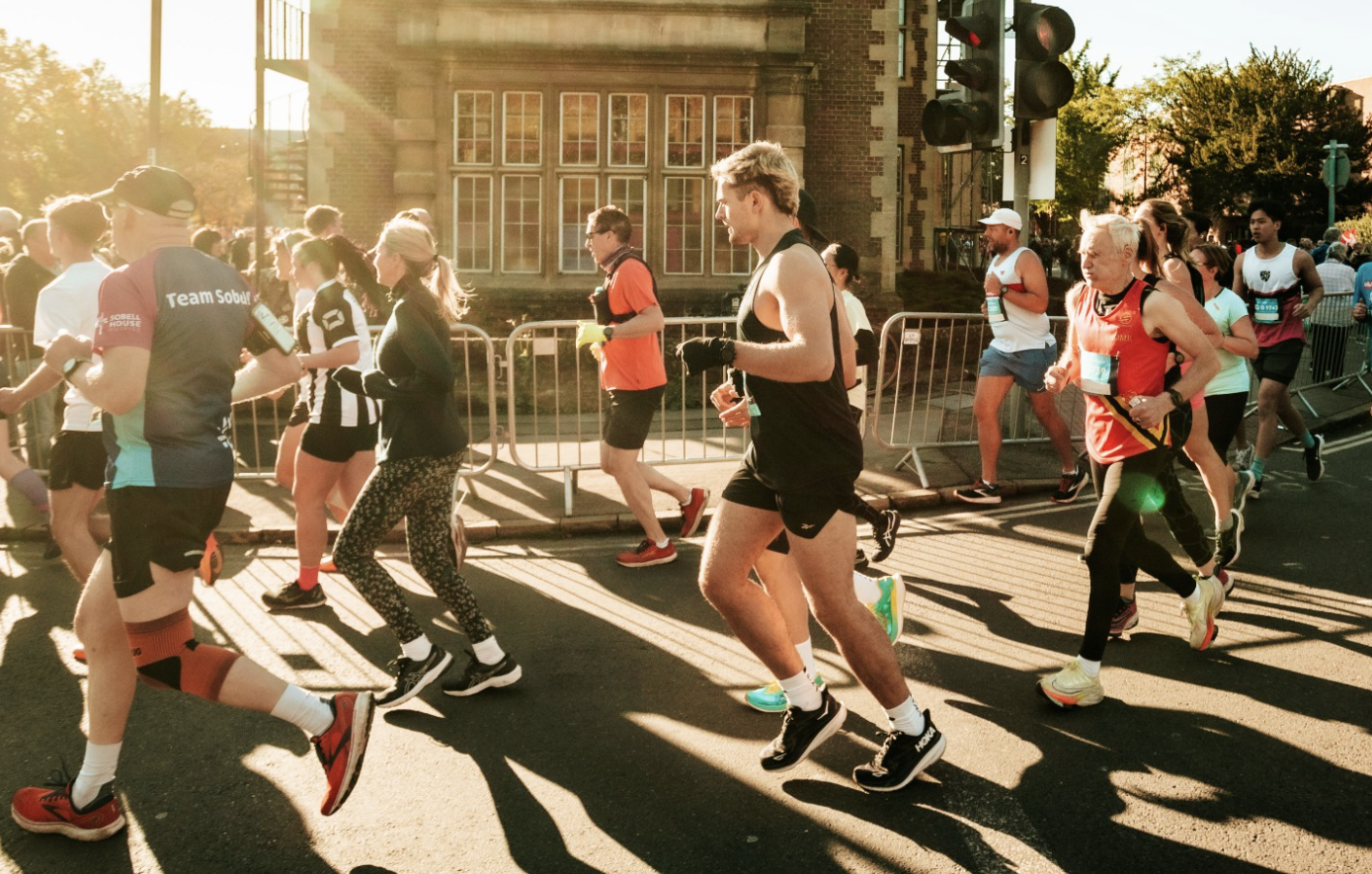





Running News
Ingebrigtsen Stars at World Athletics Indoor Championships 2025 – Plus All The Winners!
Sam Ruthe Is First 15-Year-Old To Run A Four-Minute Mile!
Eliud Kipchoge Will Run The 2025 Sydney Marathon!